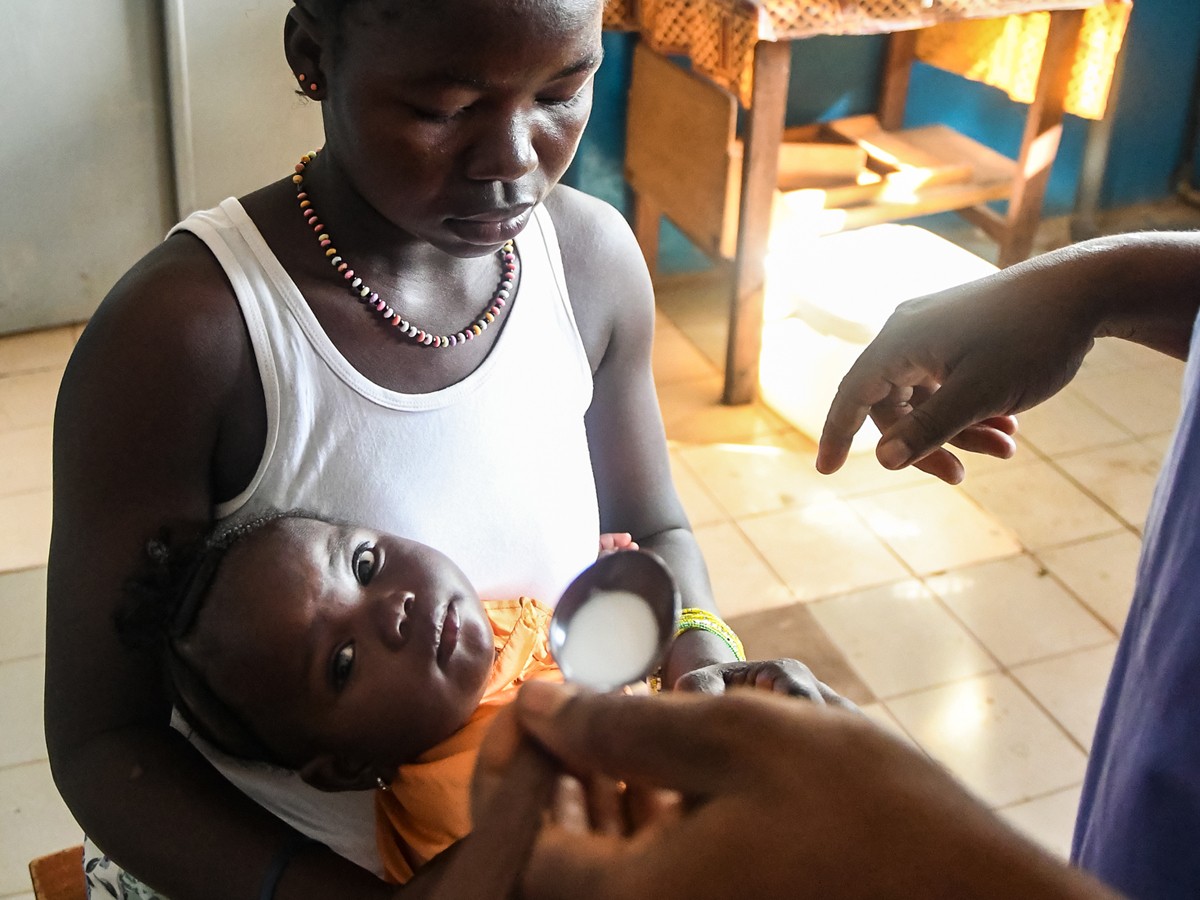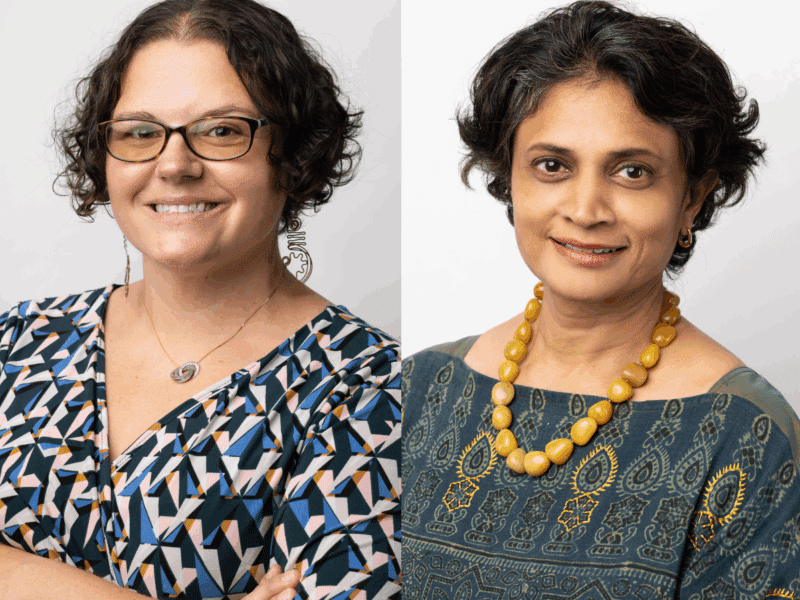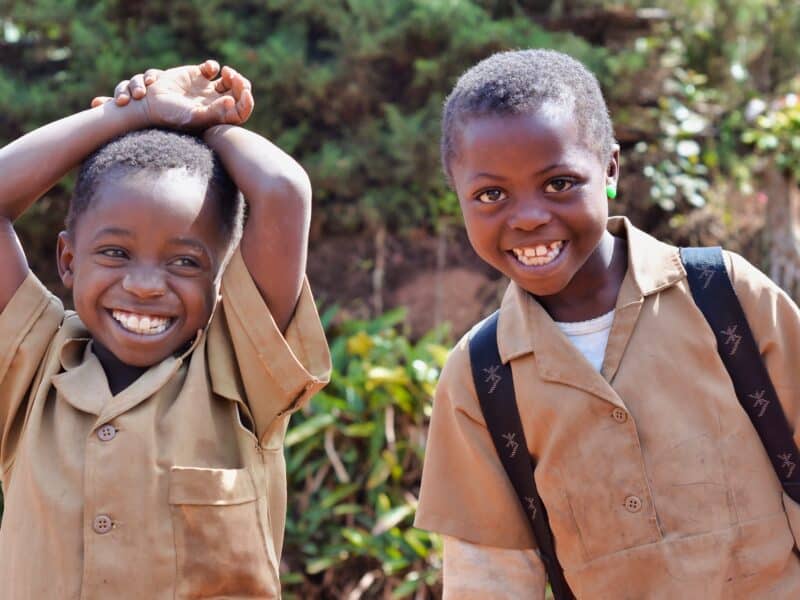The first stop for many who feel unwell in Sierra Leone: one of the country’s 45,000 traditional healers – herbalists, moray men (sorcerers), chemical sellers, drug peddlers, and more.
But traditional healers are not trained to test or treat those with malaria, believing they can treat symptoms effectively using herbal and divining or spiritual approaches. Malaria’s first symptom is typically fever which can become far more serious and even deadly if appropriate treatment is delayed. It is among the leading causes of death in Sierra Leone, according to the World Health Organization.
With the backing of the President’s Malaria Initiative and health officials in Sierra Leone, the Johns Hopkins Center for Communication Programs is piloting an approach over the next six months that they hope will save precious time and lives. The research aims to help the National Malaria Control Program work with traditional healers to provide correct information about malaria and help them understand the importance of ensuring that those with fevers are quickly referred to health facilities or community health workers, where rapid testing for malaria and medication are available.
A subset of traditional healers from two districts in Sierra Leone will be involved in the program, says CCP researcher Michael Bride.
In Port Loko, he says, healers will participate in an empowerment workshop, with the goal of changing their mindset about malaria and getting them to pledge to refer fever cases to health workers instead of treating the individuals themselves. They will be taught about malaria and how to use social and behavior change materials designed to encourage prompt care seeking among their clients with fever, and provided with referral forms for the nearest health facility or community health worker.
To provide a comparison for their intervention, traditional healers from a control district in Tonkolili will be trained on and provided the referral forms, without the empowerment workshop, SBC materials, or supportive monthly meetings meant to change their behaviors and mindsets.
The goal is to see whether providing the right information and encouragement will help traditional healers change their behavior and improve the timely referral of feverish clients to qualified health workers. It requires some serious behavior change work. Ideally, people with fevers are tested for malaria within 24 hours of becoming sick.
“We will work on interpersonal communication, how traditional healers can be persuasive with clients who are reluctant to seek health care from facilities,” Bride says. “And on the health worker side, we want to help health workers be gentle with clients who are used to traditional healers because there are some biases there.”
“Traditional healers are leaders in local communities, and they are revered by community members from all strata of the community and the population, not just in rural areas,” says CCP’s ‘Kuor Kumoji, who is leading the research. “And, for a variety of reasons, people go to the traditional healer before they go to the health facility. For malaria, we know how important it is for traditional healers to send people to health clinics as quickly as possible.”
There is still plenty of room for traditional healers in Sierra Leone, Kumoji says, just not in caring for fevers that may be malaria.
The traditional healers, she says, may benefit from the credibility that working with the health system can provide.
A decade ago, in the early stages of the Ebola epidemic in Sierra Leone, traditional healers were banned after being accused of not only providing improper treatment to the sick, but of spreading the highly contagious virus from patient to patient.
The healers made a comeback supporting vaccination campaigns during the COVID-19 pandemic and could boost their standing with health authorities by cooperating to help prevent malaria, she says. So far, she says, most all of the healers who have been reached by CCP have been enthusiastic about being a part of the research and are far less concerned about having their livelihoods threatened than first thought.
“We aren’t trying to take all the clients of the traditional healer,” Kumoji says. “We are only focusing on that subgroup of people with fever, and potentially malaria, as malaria can be treated, and serious consequences avoided.”
This is the first time that the CCP-led Breakthrough ACTION project has worked with traditional healers, and Kumoji and Bride hope that any success in Sierra Leone can not only be scaled up country wide but in other malaria-endemic nations.
In neighboring Ghana, traditional healers have shifted more mainstream as herbalists are employed in departments of traditional medicine. Sierra Leone has set up a Traditional Medicine technical working group to discuss how to bring more traditional healers into the fold.
The best part of the implementation science approach, Kumoji says, is that it can be tweaked in real time to ensure that what is working is continued and what is not can be improved.
“As we get this underway, we realize the implications, that other countries will be looking because we can see it scaled up, not just in Sierra Leone, but in any malaria-endemic country,” she says. “And, you know, Sierra Leone could very well become the training ground for lessons learned. It has implications beyond Sierra Leone and also beyond malaria. And CCP would have contributed to this in a major way.”





